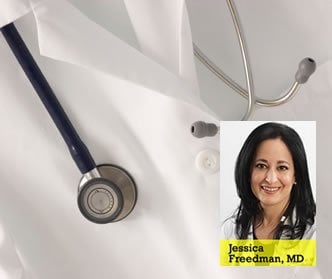By Dr. Lisabetta Divita
While the profession has changed over the past few decades, being a physician is a challenging and esteemed calling. As such, medical school admissions are quite competitive. Medical school applicants are required to complete the AAMC or AACOMAS applications, take the MCAT and fly out for interviews. Even with all of these requirements, sadly, many excellent candidates are rejected each year. This can be a blow to your ego but if you are determined to reach your dreams, your premedical preparation cannot begin too early—some important decisions are made in high school.










